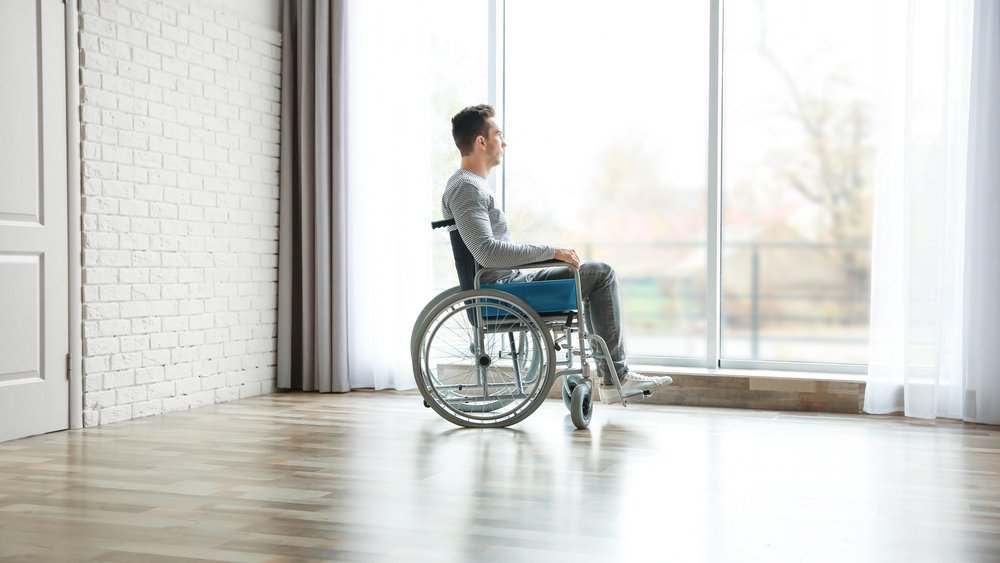In the wake of a serious injury, it’s a given that patients need to devote enormous time and attention to recovery. Unfortunately, confusing and outdated medical billing processes can sap this attention, causing psychological stress which can have a substantial impact on the body’s ability to heal, according to research from Immunology and Allergy Clinics of North America. To put this into perspective, consider the following patient story.
Meet Justin*
In April 2018, the 31-year-old from Denver suffered a devastating ski accident that damaged his spinal cord and left him with a fractured sternum, several broken ribs and a collapsed right lung. In the aftermath of his accident, Justin was told he would spend the rest of his life paralyzed from the chest down.
Determined not to be limited by his injuries, Justin committed himself wholeheartedly to physical therapy. Once admitted to a renowned rehabilitation hospital, he worked with an expert staff to regain as much mobility and independence as possible. He’d taken advantage of the time, support and calm environment he needed to focus on healing.
However, once Justin was out of the hospital, other concerns started competing for his attention ‒ especially the stack of medical bills that were waiting for him at home. Suddenly, his days were consumed with:
- Countless hours on the phone playing the liaison between hospital and insurance company
- Ongoing frustration deciphering difficult-to-understand paper bills with confusing billing codes
- Fending off collection agencies and trying to figure out how to pay significant out-of-pocket expenses
The impact of financial stress on recovery
Justin’s story is all too familiar to those who have suffered serious injury or disease. Chronic stress generated by weeks and months of financial uncertainty, confusion and frustration can greatly impact patient outcomes—especially in a time when U.S. health insurance premiums and out-of-pocket costs are at an all-time high.
Research shows that increased stress for otherwise healthy people has been linked to heart disease, depression, and unhealthy coping mechanisms. That is compounded for patients recovering from major surgery or traumatic injury. Ultimately, they have a much harder time healing, due to chronic stress.
And yet, the current invoice system is not designed to ease patient stress. Patients receive multiple paper bills through the mail, sometimes months later, and have to spend their crucial recovery time like Justin: sorting through billing codes and playing the middleman between insurance companies and healthcare providers. Then, they are often required to use “snail” mail and paper checks for payment, which can lead to delays, miscommunications and mistakes.
Easing the pain
In light of the growing number of stories like Justin’s, there are new ways that providers can protect their patients from the detrimental effects of chronic stress brought on by broken billing.
One way is to implement a web-based patient payment and engagement solution like Cedar. By consolidating billing information and making it accessible in one convenient online location, with personalized reminders based on their communications method of choice (email, text or paper mail) and customized payment plan options, Cedar helps minimize patient stress during the recovery period. It also lets patients pay by credit card or Apple Pay rather than check, ensuring the healthcare billing process resembles that of other consumer-friendly industries, like retail or travel.
The most innovative healthcare organizations, such as Westmed Medical Group, have begun to reimagine the patient billing experience. A straightforward, personalized payment approach can help reinforce the healing process and improve overall satisfaction. By sidestepping the complications of paper billing, digital payment solutions like Cedar’s can help patients stay focused on their journey to recovery while also improving the provider’s financial position. This 91-year-old patient says it best: “The entire process took less than a minute. And no searching for a stamp!“
Want to learn more? Contact us for a demo.
*Details are based on a real patient experience, edited to protect privacy.



